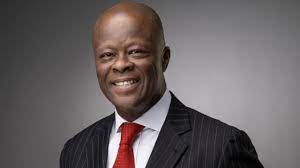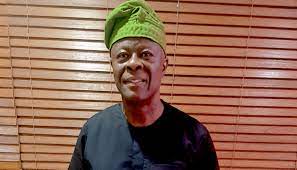Honourable Minister of Finance and Coordinating Minister of the Economy, Mr. Wale Edun, has defended the introduction of the controversial windfall tax in the banking sector, explaining that it aims to redistribute unearned income.
Speaking during a recent interview, Mr. Edun emphasised that such a levy is not unique to Nigeria but is a common practice globally, especially in the energy and banking sectors.
According to him: “Where you have unearned income, where you have a section of the society or an industry or a set of companies that earn money through no dint of hard work of their own, the society deserves a chance to share some of that, and it is just redistribution of that. So I think that takes care of the issue of the windfall levy.”
Addressing concerns about the recent decision to raise the maximum borrowing percentage in the Ways and Means from five to ten percent, Mr. Edun stated that this does not imply reliance on Central Bank of Nigeria (CBN) financing. Instead, the government has utilised market instruments to manage its debts.
“We have not gone to the central bank to say, please lend the government money to pay its debt, to pay its salaries. In fact, we have used market instruments to pay down what we owed, and that is a very, very germane aspect of having a strong economy,” Mr. Edun explained.
He described the National Assembly’s approval as a fail-safe measure, providing flexibility to manage short-term financial gaps.
Also, during the interview, Mr. Edun further disclosed that the federal government allocates an astonishing $600 million each month for fuel importation.
He explained that the extensive fuel import bill partly benefits neighbouring countries, including those in Central Africa, which consume a significant portion of Nigeria’s fuel imports.
He further explained that President Bola Tinubu’s decision to remove the fuel subsidy last year was driven by the challenge of accurately tracking domestic fuel consumption.
He pointed out that the subsidy system was being exploited by a select few, leaving the majority of Nigerians without its benefits.
According to Mr. Edun, Nigeria’s fuel imports are used not only domestically but also by countries to the east, north, and west of Nigeria.
“We are buying for countries to the east, almost as far as Central Africa. We are buying for countries to the North and we are buying for countries to the West,” he remarked.
The Honourable Minister stressed the urgency of addressing this issue, which hampers Nigeria’s economic progress.

Mr. Edun also emphasised that the welfare of Nigerians remains a priority for the current administration, with a particular focus on ensuring food availability and affordability. He assured that importation would be permitted only after exhausting local supplies to protect local farmers.
“There is a concerted effort to ensure that we have home-grown food available. We will have auditors that will check that everything available locally in the markets or with the millers and so forth has been taken up,” he said.
The Honourable Minister highlighted various government interventions aimed at reducing inflation, stabilising the exchange rate, and lowering interest rates to create a conducive environment for investment and job creation.
“With the kind of food production programme we have, inflation will come down as prices come down. When inflation comes down, exchange rate will stabilise. Interest rates will come down and the economy will have a chance,” Mr. Edun noted.
He also mentioned the government’s cash transfer programme, which currently supports about 4.3 million people, with plans for rapid expansion.
He discussed the funding of economic initiatives, noting that $800 million under a World Bank programme would be utilised. This funding, from the International Development Association (IDA), is offered at one percent interest over 40 years. Additionally, the government has introduced several funding schemes for various enterprise sizes, including grants of N50, 000 for nano enterprises and up to N1 billion financing for larger medium-sized enterprises at nine percent interest per annum.
Mr. Edun also highlighted the coordination of fiscal and monetary policies, stating that the Ministry of Finance and the Debt Management Office (DMO) have assisted the CBN in managing inflation.
“The government took on the challenge of paying higher interest rates on our domestic debt to help the central bank achieve its inflation target and attract foreign flows into the country,” he explained.
He also clarified the issue of the N570 billion recently released to state governments, stating that it was a reimbursement under the COVID-19 financing protocol.
“This actually refers to a reimbursement that they received around December last year onwards. The point is that the states have received more money,” he said.
These clarifications by Mr. Edun aim to shed light on the government’s economic strategies and reassure stakeholders of the administration’s commitment to sustainable economic growth and development.




